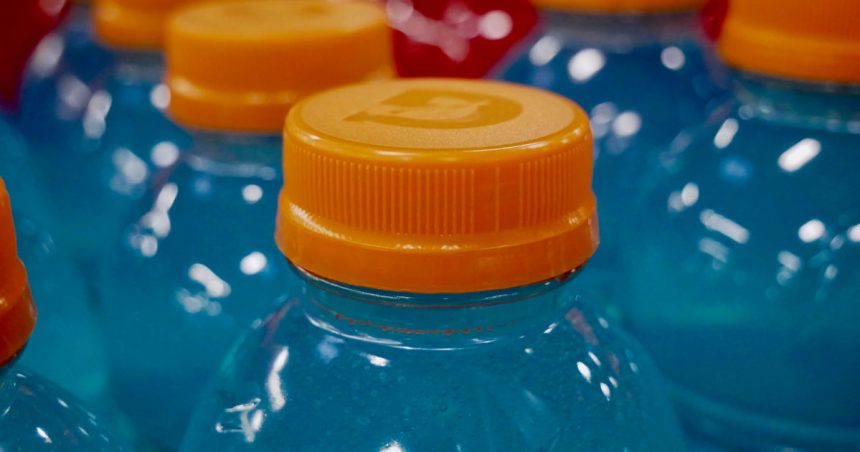Gatorade is a popular sports drink with various beverage lines, each containing unique ingredients. However, concerns arise due to the sugars, dyes, and additives present in Gatorade that may impact health. Let’s delve into the composition of Gatorade, its drawbacks, and explore healthier alternative options.
Understanding Gatorade’s Ingredients
Gatorade offers different beverage lines like original, Flow, Fierce, Frost, G Organic, G2, and Zero, each with varying sugar and flavor levels. Despite differences, they share electrolytes, flavors, dyes, and other ingredients.
Here’s a breakdown of a typical Gatorade bottle and its key ingredients:
- Water for hydration
- Sugar and Dextrose for fuel
- Citric acid for flavor
- Salt for electrolytes
- Natural flavor, food dyes, and stabilizing agents for color and taste
G Organic stands out for its organic certification and simpler ingredient list. It only contains seven ingredients, including water, cane sugar, and natural flavors.
Concerns Regarding Food Dyes
Gatorade’s vibrant colors come from food dyes like Red 40 and Yellow 5, raising safety concerns. While FDA deems them safe, some worry about risks like hyperactivity and cancer. G Organic offers dye-free options for those wary of artificial colors.
European countries have restrictions on synthetic dyes due to potential health effects. Studies have linked dyes to allergies and hyperactivity, prompting concerns among consumers and advocacy groups.
The Sugar Debate
Gatorade’s high sugar content is a common critique. Excessive sugar intake, especially without intense physical activity, can lead to weight gain, chronic diseases, and tooth decay. Choosing healthier alternatives is crucial for overall well-being.
Drawbacks of Excessive Gatorade Consumption
Regular Gatorade consumption, particularly without intense exercise, can pose health risks:
- Dental Issues: Sports drink acidity and sugars can harm teeth.
- Behavioral Problems: Artificial colors may worsen ADHD symptoms.
- Weight Gain: Excessive sugar intake can contribute to weight gain and health issues.
Exploring Healthy Alternatives
Natural options like coconut water and watermelon offer electrolyte replacement and other health benefits:
- Coconut Water: A hydrating, antioxidant-rich alternative to commercial sports drinks.
- Watermelon: Hydrating and rich in minerals and antioxidants for overall health.
- Homemade Electrolyte Drink: Create your own electrolyte replacement using natural ingredients.
Consider other alternatives like fruit-infused water, herbal teas, and chia seeds for hydration and electrolyte replenishment. Prioritizing health by choosing natural options over Gatorade can lead to better overall well-being.
Keep Reading: Graviola, The Antioxidant Super Fruit You’ve Never Heard Of






